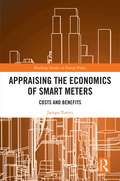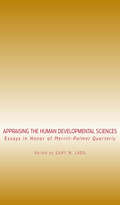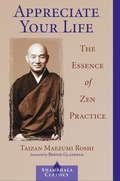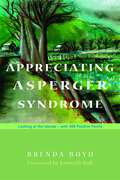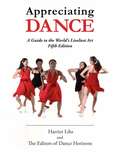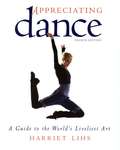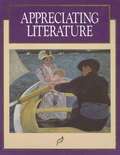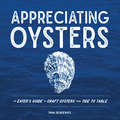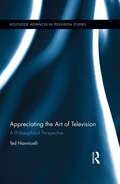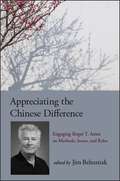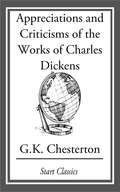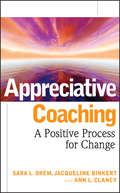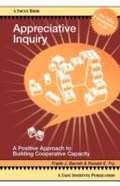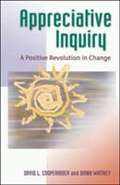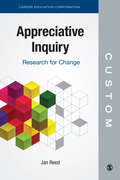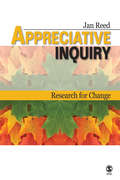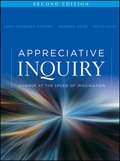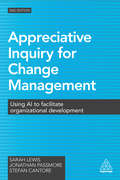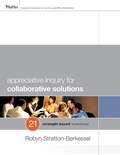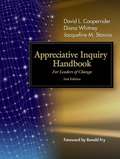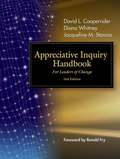- Table View
- List View
Appraising the Economics of Smart Meters: Costs and Benefits (Routledge Studies in Energy Policy)
by Jacopo TorritiThis book focuses on the economics of smart meters and is one of the first to present comprehensive evidence on the impacts, cost-benefits and risks associated with smart metering. Throughout this volume, Jacopo Torriti integrates his findings from institutional cost-benefit analyses and smart metering trials in a range of European countries with key economic and social concepts and policy insights derived from almost ten years of research in this area. He explores the extent to which the benefits of smart meters outweigh the cost, and poses key questions including: which energy savings can be expected from the roll out of smart meters in households? Is Cost-Benefit Analysis an appropriate economic tool for assessing the impacts of smart metering rollouts? Can smart meters play a significant role in research on people’s activities and the timing of energy demand? Torriti concludes by providing a much-needed survey of recent changes and expected future developments in this growing field. This book will be of great interest to students and scholars of energy policy and demand and smart metering infrastructure.
Appraising the Human Developmental Sciences: Essays in Honor of Merrill-Palmer Quarterly
by Gary W. LaddThis volume sets out to celebrate the Quarterly's significant contribution to developmental research and to highlight the advances made in the field since the early 1950s.
Appreciate Your Life: The Essence of Zen Practice
by Wendy Egyoku Nakao Eve Myonen Marko Taizan MaezumiHere is the first major collection of the teachings of Taizan Maezumi Roshi (1931-1995), one of the first Japanese Zen masters to bring Zen to the West and founding abbot of the Zen Center of Los Angeles and Zen Mountain Center in Idyllwild, California. These short, inspiring readings illuminate Zen practice in simple, eloquent language. Topics include zazen and Zen koans, how to appreciate your life as the life of the Buddha, and the essential matter of life and death. Appreciate Your Life conveys Maezumi Roshi's unique spirit and teaching style, as well as his timeless insights into the practice of Zen. Never satisfied with merely conveying ideas, his teisho, the Zen talks he gave weekly and during retreats, evoked personal questions from his students. Maezumi Roshi insisted that his students address these questions in their own lives. As he often said, "Be intimate with your life." The readings are not teachings or instructions in the traditional sense. They are transcriptions of the master's teisho, living presentations of his direct experience of Zen realization. These teisho are crystalline offerings of Zen insight intended to reach beyond the student's intellect to her or his deepest essence.
Appreciating Asperger Syndrome: Looking at the Upside - with 300 Positive Points
by Kenneth Hall Brenda BoydPeople with Asperger Syndrome have many characteristics that are frequently seen in a negative light. Brenda Boyd shows that for every characteristic of AS that can be looked at negatively, there are several positive aspects that can be drawn on and developed. Discussing AS in general terms, she talks through the reasons why people with AS approach life in the way they do, and what an enormous contribution they make to the world. She then explores different characteristics of AS; while she acknowledges the negative perception so many people have of these characteristics, she points out the large number of advantages to the Aspergers way of thinking for individuals with AS, those around them and society as a whole. For every negative, Boyd proves there are many more positives. From their refreshing honesty to their originality and potential to become leaders rather than followers, people with AS have many admirable personality traits that should be nurtured. This book shows that by adjusting our perceptions of what is 'normal' and embracing diversity, AS can not only be understood and accepted, but appreciated. Appreciating Asperger Syndrome is a celebration of AS which should be read by individuals with AS, family members, and anyone who knows or works professionally with individuals with AS.
Appreciating Dance: A Guide To The World's Liveliest Art
by Dance Horizons Editors Harriet LihsAppreciating Dance is a thorough and accurate history of various forms of dance, analyzing everything from social dance, and ballet to modern dance, tap, jazz, theatrical dance and contemporary dance. In it readers will find: a brief biography of notable dancers and choreographers; information needed to expand the enjoyment of performance; the intersection of dance and religion; the history of dance through the beginning of the 21st century; and budding dance trends. Every chapter in this fifth edition has been updated and revised with new information, including suggestions for YouTube viewing at the end of each chapter.
Appreciating Dance: A Guide to the World's Liveliest Art
by Harriet R. LihsWritten for the dance novice, this book is a concise, thorough, and accurate history of all forms of dance. It gives a brief biography of many of the notable dancers and choreographers who have contributed to each form of dance, and provides, in a nutshell, the information needed to expand the enjoyment of performance. It also details the history of dance from its earliest beginnings and covers the intersection of dance and religion, social dance, ballet, modern dance, tap, jazz, film dance, and contemporary dance.
Appreciating Literature: Signature Edition
by Editors at the McGraw-Hill-GlencoeThis text offers some great literature to think about and an organized way to do so, through skills like comparing characters, analyzing points of view, contrasting settings, inferring outcomes etc.
Appreciating Oysters: An Eater's Guide To Craft Oysters From Tide To Table
by Dana DeskiewiczThe essential guide to America's booming craft oyster scene Oysters are having a moment. Like craft beer before them, oysters are being discovered by discerning foodies who love that they're a tide-to-table, sustainable form of protein, and an adventurous food trend that's as Instagrammable as they come. Oyster expert and founder of the Oystour app Dana Deskiewicz takes readers of a salty ride through the current craft oyster scene. The 85 varieties profiled are lovingly raised on small farms along America's coasts, with names as memorable as their flavors—Murder Point, Choptank Sweets, Fat Dogs, Lady Chatterleys, and many more. Whether you seek they eye-opening brine explosion of an East coast Breachway, or the cucumber-and-melon delicacy of a West coast Church Point, Deskiewicz will guide you through the best bivalves North America has to offer.
Appreciating the Art of Television: A Philosophical Perspective (Routledge Advances in Television Studies)
by Ted NannicelliContemporary television has been marked by such exceptional programming that it is now common to hear claims that TV has finally become an art. In Appreciating the Art of Television, Nannicelli contends that televisual art is not a recent development, but has in fact existed for a long time. Yet despite the flourishing of two relevant academic subfields—the philosophy of film and television aesthetics—there is little scholarship on television, in general, as an art form. This book aims to provide scholars active in television aesthetics with a critical overview of the relevant philosophical literature, while also giving philosophers of film a particular account of the art of television that will hopefully spur further interest and debate. It offers the first sustained theoretical examination of what is involved in appreciating television as an art and how this bears on the practical business of television scholars, critics, students, and fans—namely the comprehension, interpretation, and evaluation of specific televisual artworks.
Appreciating the Chinese Difference: Engaging Roger T. Ames on Methods, Issues, and Roles (SUNY series in Chinese Philosophy and Culture)
by Jim BehuniakIn this volume, prominent philosophers working in Chinese thought and related areas critically reflect upon the work of Roger T. Ames, one of the most significant contemporary figures working in the field of Chinese philosophy. Through his decades of collaborative work in comparative methodology and cross-cultural interpretation, along with a number of pathbreaking translations of Chinese philosophical texts, Ames has managed to challenge standing paradigms and open fresh avenues of research into the Chinese tradition. His work will be read and studied for years to come.The original essays presented here, which are substantive philosophical contributions in their own right, cover the full range of Ames's scholarly output. They address methodological questions as well as specific issues in textual interpretation, including ample discussion of Ames's most recent and provocative contribution: Confucian "role ethics." In the final section of the book, Ames responds to each essay. The result is a conversation and engagement that both underscores the vitality of his thinking and indicates the directions it may take in the future. Altogether, this work provides a snapshot of a remarkable career—and an invitation to continue reflecting upon its meaning and importance.
Appreciation Post: Towards an Art History of Instagram
by Tara WardWhat does an art history of Instagram look like? Appreciation Post reveals how Instagram shifts long-established ways of interacting with images. Tara Ward argues Instagram is a structure of the visual, which includes not just the process of looking, but what can be seen and by whom. She examines features of Instagram use, including the effect of scrolling through images on a phone, the skill involved in taking an "Instagram-worthy" picture, and the desires created by following influencers, to explain how the constraints imposed by Instagram limit the selves that can be displayed on it. The proliferation of technical knowledge, especially among younger women, revitalizes on Instagram the myth of the masculine genius and a corresponding reinvigoration of a masculine audience for art. Ward prompts scholars of art history, gender studies, and media studies to attend to Instagram as a site of visual expression and social consequence. Through its insightful comparative analysis and acute close reading, Appreciation Post argues for art history’s value in understanding the contemporary world and the visual nature of identity today.
The Appreciations and Criticisms of t
by G. K. ChestertonBorn in London, Chesterton was educated at St. Paul's, but never went to college. He went to art school. In 1900, he was asked to contribute a few magazine articles on art criticism, and went on to become one of the most prolific writers of all time. He wrote a hundred books, contributions to 200 more, hundreds of poems, including the epic Ballad of the White Horse, five plays, five novels, and some two hundred short stories, including a popular series featuring the priest-detective, Father Brown. In spite of his literary accomplishments, he considered himself primarily a journalist. He wrote over 4000 newspaper essays, including 30 years worth of weekly columns for the Illustrated London News, and 13 years of weekly columns for the Daily News. He also edited his own newspaper, G.K.'s Weekly. (To put it into perspective, four thousand essays is the equivalent of writing an essay a day, every day, for 11 years. If you're not impressed, try it some time. But they have to be good essays, all of them, as funny as they are serious, and as readable and rewarding a century after you've written them.) Chesterton was equally at ease with literary and social criticism, history, politics, economics, philosophy, and theology. His style is unmistakable, always marked by humility, consistency, paradox, wit, and wonder. His writing remains as timely and as timeless today as when it first appeared, even though much of it was published in throw away paper. This man who composed such profound and perfect lines as "The Christian ideal has not been tried and found wanting; it has been found difficult and left untried," stood 6'4" and weighed about 300 pounds, usually had a cigar in his mouth, and walked around wearing a cape and a crumpled hat, tiny glasses pinched to the end of his nose, swordstick in hand, laughter blowing through his moustache. And usually had no idea where or when his next appointment was. He did much of his writing in train stations, since he usually missed the train he was supposed to catch. In one famous anecdote, he wired his wife, saying, "Am at Market Harborough. Where ought I to be?" His faithful wife, Frances, attended to all the details of his life, since he continually proved he had no way of doing it himself. She was later assisted by a secretary, Dorothy Collins, who became the couple's surrogate daughter, and went on to become the writer's literary executrix, continuing to make his work available after his death. This absent-minded, overgrown elf of a man, who laughed at his own jokes and amused children at birthday parties by catching buns in his mouth, was the man who wrote a book called The Everlasting Man, which led a young atheist named C.S. Lewis to become a Christian. This was the man who wrote a novel called The Napoleon of Notting Hill, which inspired Michael Collins to lead a movement for Irish Independence. This was the man who wrote an essay in the Illustrated London News that inspired Mahatma Gandhi to lead a movement to end British colonial rule in India. This was a man who, when commissioned to write a book on St. Thomas Aquinas (aptly titled Saint Thomas Aquinas), had his secretary check out a stack of books on St.
Appreciative Coaching
by Sara L. Orem Jacqueline Binkert Ann L. ClancyAppreciative Coaching describes an approach to coaching that is rooted in Appreciative Inquiry. At its core the Appreciative Coaching method shows individuals how to tap into (or rediscover) their own sense of wonder and excitement about their present life and future possibilities. Rather than focusing on individuals in limited or problem-oriented ways, Appreciate Coaching guides clients through four stages--Discovery, Dream, Design, and Destiny--that inspire them to an appreciative and empowering view of themselves and their future.
Appreciative Inquiry: A Positive Approach To Building Cooperative Capacity
by Frank J. Barrett Ronald E. FryThis book provides a concise introduction to and overview of the growing discipline and practice of Appreciative Inquiry (AI). If you are intrigued by the prospect of mobilizing rapid, positive change with multiple stakeholders in a human system that is important to you, this book is for you.
Appreciative Inquiry: A Positive Revolution in Change
by David L. Cooperrider Diana WhitneyThis short, practical guide offers an approach to organizational change based on the possibility of a more desirable future, experience with the whole system, and activities that signal "something different is happening this time."
Appreciative Inquiry: Research For Change (Custom CEC Edition)
by Jan ReedAppreciative Inquiry: Research for Change is the first book dedicated to exploring appreciative inquiry (AI) as an approach to change-focused research. More than ever, students and researchers seek to do more than report on what they see following a research study or project, but rather engage the research environment (participants, stakeholders) to promote change. In other words, their studies are as much research-based as they are meant to initiate or sustain social or organizational change. Very often, the nature of this dual purpose - research and change - requires the researcher to use nontraditional approaches that bridge the theory-practice gap. In this book, author Jan Reed draws on the work of David Cooperrider and other pioneers in the area of AI to bridge the current gap between consulting activity and academic research in AI. <p><p> The book begins with real-world, international insights and experiences of AI as a research methodology and offers the history and principles of AI. Next, it provides ways of linking and differentiating these activities and exploring the range of ways to engage AI in change-focused research and practice - from research question and research design through data collection, data analysis, interpretation, and dissemination of findings. And perhaps most importantly, the book places AI in the context of other research paradigms and approaches, addressing positivist versus naturalistic stances, social constructionist concepts, and related methods and methodologies such as action research, PAR, ethnography, case studies, and narrative inquiry. <p> This book is appropriate for use in graduate-level methods courses devoted to appreciative inquiry, change- or community-based research, organizational development and change, and related topics across the social sciences, education, and management. It will also prove invaluable to researchers and professionals who are interested in using AI but need to know how to frame this approach within the greater context of traditional research.
Appreciative Inquiry: Research for Change
by Jan ReedAppreciative Inquiry: Research for Change is the first book to explore in depth the issues that arise when appreciative inquiry is used as a research framework, rather than an organizational development tool. Author Jan Reed draws upon her own experience of using Appreciative Inquiry (AI) as a research approach—shaping the asking of questions, the gathering of information, and the communication of ideas.
Appreciative Inquiry
by Jane Magruder Watkins Bernard J. MohrThis book shows how the Appreciative Inquiry process helps OD and HR professionals tap into inspiring "high point" accounts of personal or collective capacity. This new edition puts the focus on how AI really works and adds guidelines on how to apply AI in a variety of organizational situations and for a variety of initiatives such as coaching, leadership development, strategic planning, and teambuilding. It contains tools and other resources to help with immediate use in the workplace and new and updated case studies that show how it really works.
Appreciative Inquiry for Change Management: Using AI to Facilitate Organizational Development
by Sarah Lewis Jonathan Passmore Stefan CantoreAppreciative Inquiry (AI) is a widely recognised process for engaging people in organizational development and change management. Based on conversational practice, it is a particular way of asking questions, fostering relationships and increasing an organization's capacity for collaboration and change. It focuses on building organizations around what works, rather than trying to fix what doesn't, and acknowledges the contribution of individuals in increasing trust and organizational alignment and effectiveness. Appreciative Inquiry for Change Management studies AI in depth, identifying what makes it work and how to implement it to improve performance within the business. Appreciative Inquiry for Change Management explains the skills, perspectives and approaches needed for successful AI, and demonstrates how a practical conversational approach can be applied to organizational challenges in times of change. Case studies from organizations that have already integrated AI into their change management practice, including Nokia and BP, reveal why the processes are valuable and how to promote, create and generate such conversations in other organizations. Written in jargon-free language, this second edition now includes chapters on how positive psychology can enhance appreciative practice and appreciative coaching, making it an essential resource for anyone looking to implement AI in their organization.
Appreciative Inquiry for Collaborative Solutions: 21 Strength-Based Workshops
by Robyn Stratton-BerkesselA practical resource for facilitators who want to introduce positive, strength-based perspectives into their work and trainings, this book provides an overview of Appreciative Inquiry's positive psychology and strength-based change methods. Author Robyn Stratton-Berkessel explores basic principles and practices, shows you how to incorporate AI into existing work, and offers practical advice for designing new trainings. She provides a variety of ready-to-deliver workshops on topics such as leadership, diversity, technology, creativity, change, innovation, learning, collaboration, coaching, and team-building. In addition, she suggests how to make the outcomes of an Appreciative Inquiry session stick and what it takes to make these valuable approaches self-sustaining. A first in the field of Appreciative Inquiry, this important resource provides twenty one ready-to-use workshops for facilitators, leaders, consultants, and trainers who want to empower others in creating collaborative solutions.
Appreciative Inquiry Handbook: For Leaders of Change (2nd edition)
by David L. Cooperrider Jacqueline M. Stavros Diana WhitneyOne of today's most popular change methods, Appreciative Inquiry (AI) has been used to undertake transformational initiatives in dozens of organizations, ranging from McDonald's to the U.S. Navy to Save the Children. The assumption of AI is simple. Every organization has something that works right -- things that give it life when it is vital, effective, and successful. AI begins by identifying this positive core and connecting organizational visions, plans, and structures to it in ways that heighten energy and inspire action for change.
The Appreciative Inquiry Handbook: For Leaders of Change
by David Cooperrider Diana D. Whitney Jacqueline StavrosOne of today’s most popular change methods, Appreciative Inquiry (AI) has been used to undertake transformational initiatives in dozens of organizations, ranging from McDonald’s to the U.S. Navy to Save the Children. The assumption of AI is simple. Every organization has things that work right—things that give it life when it is vital, effective, and successful. AI begins by identifying this positive core and connecting organizational visions, plans, and structures to it in ways that heighten energy and inspire action for change. This book presents all of the concepts, examples, and aids necessary to engage groups of all sizes in Appreciative Inquiry. The authors provide background information on what AI is and how it works and offer sample project plans, designs, agendas, course outlines, interview guidelines, participant worksheets, a list of resources, and more. This second edition has been extensively revised, updated, and expanded, including new case studies, new tools and supplemental articles, an expanded bibliography and resource list, and an entirely new chapter on case applications. And throughout, the authors focus on how AI can support an organizational focus on sustainability and the “triple bottom line” of people, prosperity, and planet.
